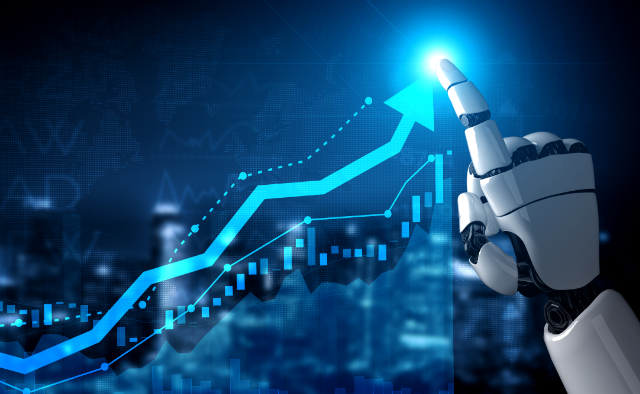

Based on the current craze and prospects of artificial intelligence, here are six predictions of experts for artificial intelligence in 2023.
A combination of factors such as powerful computing in small form factors, edge computing, integration of IT and operational technology (OT), 5G, and even the COVID-19 pandemic have driven the adoption of AI across industries . Market View Research predicts that global adoption of artificial intelligence will grow at a staggering 38% compound annual growth rate by 2030.
So, where will artificial intelligence go? Experts shared six predictions for artificial intelligence in 2023.
Mike Krause, director of artificial intelligence solutions at enterprise artificial intelligence software company Beyond Limits, said generative artificial intelligence will continue to gain attention. Generative models, such as the digital image generator DALL-E, can analyze data and interpolate to create something entirely new.
"But generative AI models are not just good at creating digital images like DALL-E. They are used to discover new materials for battery design, carbon capture and other innovative payloads. Krause predicts, generative models will reach new heights in 2023. In healthcare, for example, vaccine modeling, drug discovery, and even personalized medicine supported by training data generated from electronic medical records are all expected to gain momentum.”
Lee Howells, director of artificial intelligence at professional services firm PA Consulting, said artificial intelligence will no longer be a black box. It predicts that by 2023, more organizations will voluntarily disclose their AI principles and outline their processes.
Howells said that in areas that directly affect individuals, "explainable artificial intelligence" will be used more than black box models. Organizations that publish their AI principles and use AI and data in visibly ethical ways will be more likely to have public acceptance of the use of their data.
Lian Jye Su, research director of artificial intelligence and machine learning at ABI research, said: “As more and more artificial intelligence (systems) are deployed in various fields, regulators are eager to ensure that all artificial intelligence models follow the Run the way it should, without any bias or discrimination." It believes that while explainable AI will make processes more transparent, some market developments will be needed, including supporting model development and deployment infrastructure that can display inputs and outputs and Processing the relationships between layers, introducing artificial intelligence models is interpretable by default, and there are clear regulatory guidelines and principles.
Bryan Harris, executive vice president and chief technology officer of analytics software company SAS, said that by 2023, a market for ready-made artificial intelligence models will emerge.
"Coming soon, an industry-specific AI model marketplace will enable enterprises to easily consume and integrate AI models into their business without having to create and manage the model lifecycle. Enterprises can simply subscribe to the AI model store. Think of the Apple Music store or Spotify’s AI models, which are segmented by industry and the data they process.”
Adnan Masood, chief AI architect at UST, a digital transformation solutions company Said that the call for sustainable artificial intelligence will become louder and louder. Businesses are more aware than ever of their environmental footprint, and sustainable AI describes the use of artificial intelligence in a way that does not negatively impact the environment or society.
“The goal of sustainable AI is to create technology that can be used without causing harm to the planet or its inhabitants. This includes using renewable energy, developing recycling and waste management plans, and developing policies to protect workers from Policies to be replaced by robots. To achieve these goals, by 2023, companies will plan to involve all stakeholders in the development process, including government officials, industry leaders and the public."
Masood predicts that we will see Artificial intelligence models are increasingly using synthetic data. For some business use cases, the future of AI is in the creation of synthetic data for its domain. This data can help businesses better understand their customers and make more informed decisions.
Masood said that by 2023, synthetic data will become increasingly reliable and used to create realistic models of customer behavior, which can improve marketing campaigns or target new markets. Additionally, synthetic data will be used to test new products or services before they are launched, ensuring they are ready for the real world.
AI systems will become increasingly multimodal, capable of processing information from multiple sources, such as images, audio, sensor data and video. This insight can be used to create better experiences in customer service and medical diagnostics.
Lian Jye Su emphasized that successful AI implementation requires a delicate balance and understanding of people and processes, just like any other technology. It said: "AI developers and IT staff will increasingly be challenged with the ability to communicate and leverage interpersonal skills and human behavior to overcome obstacles while trying to successfully leverage AI. The new frontier points to 'social' AI Developers, data scientists and data engineers.”
The above is the detailed content of Six predictions for artificial intelligence in 2023. For more information, please follow other related articles on the PHP Chinese website!




